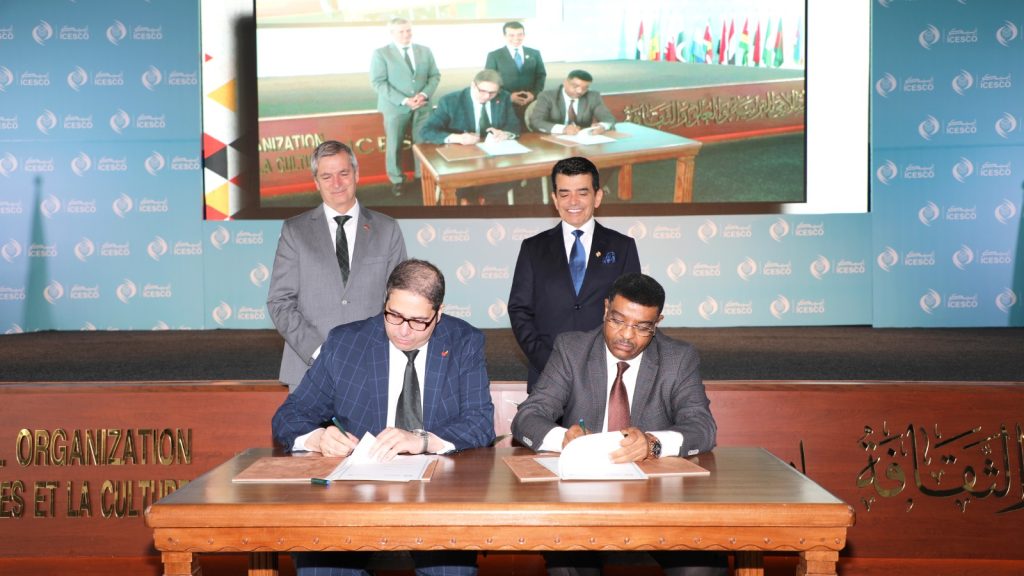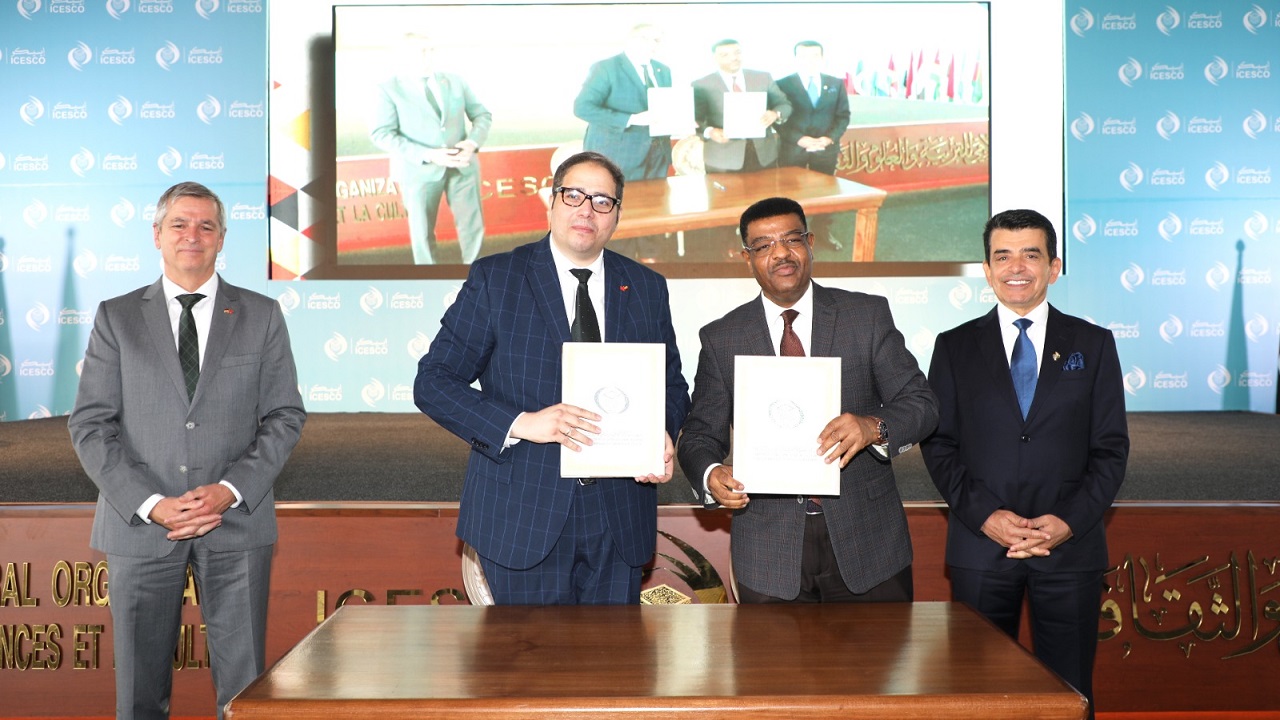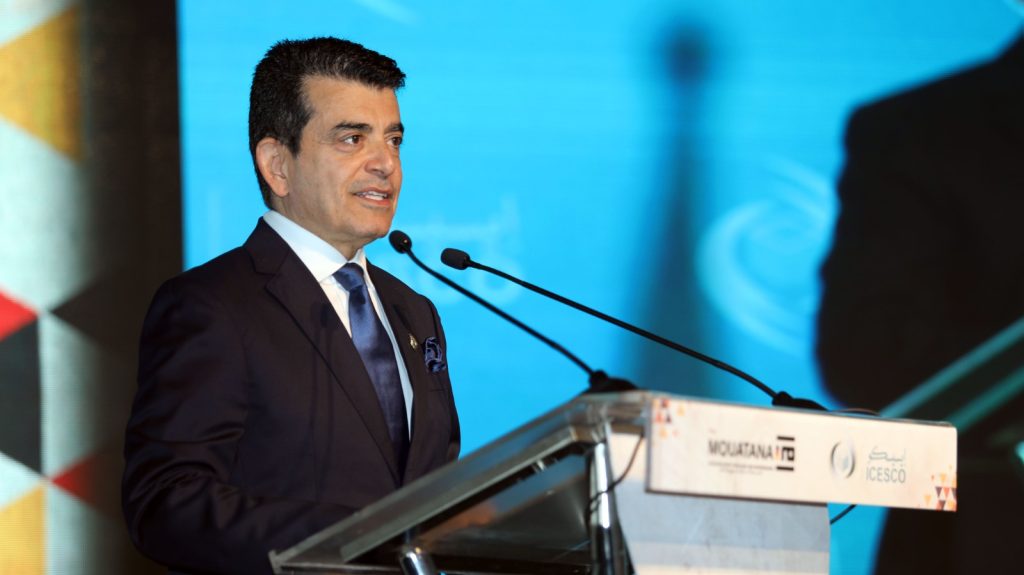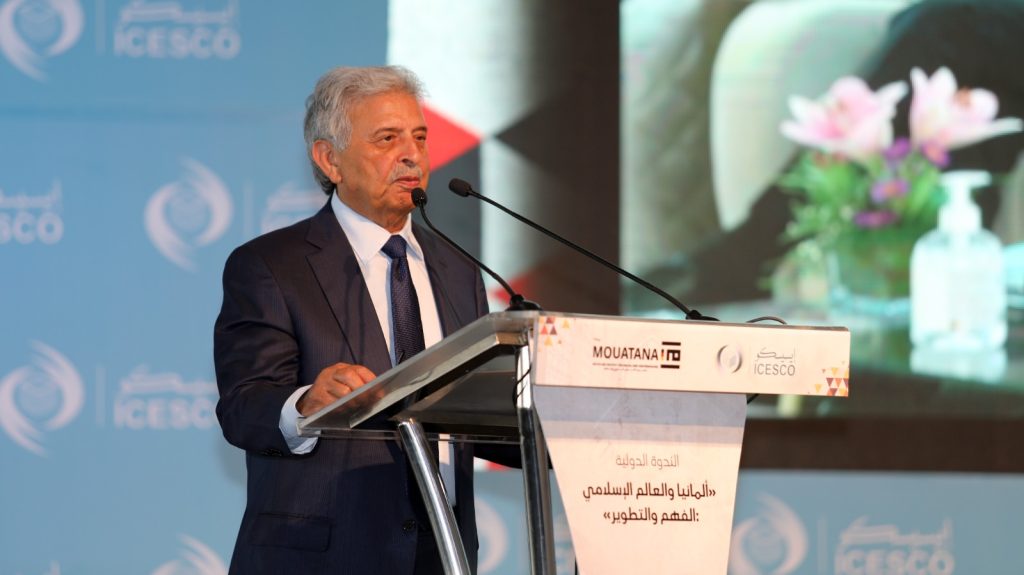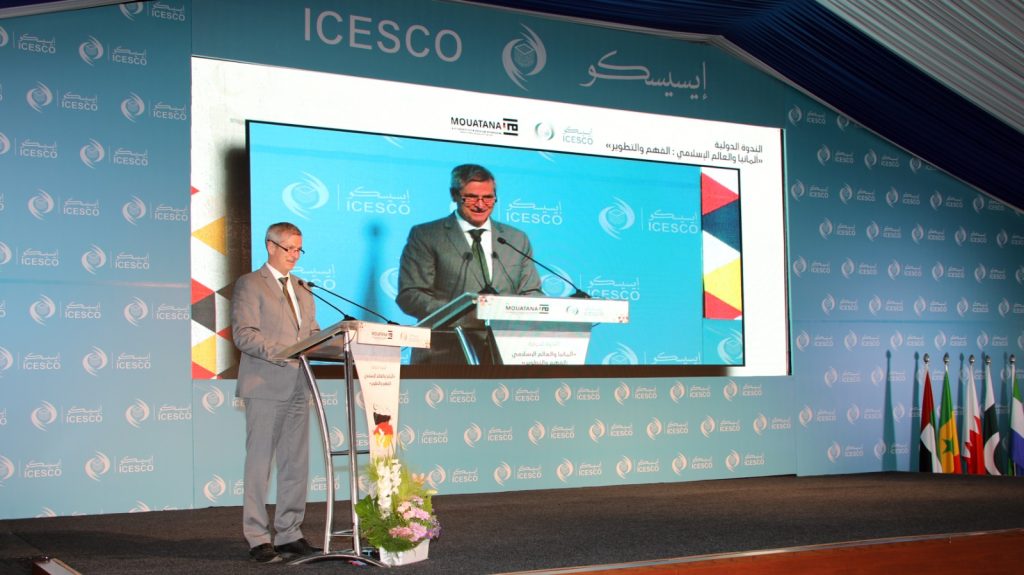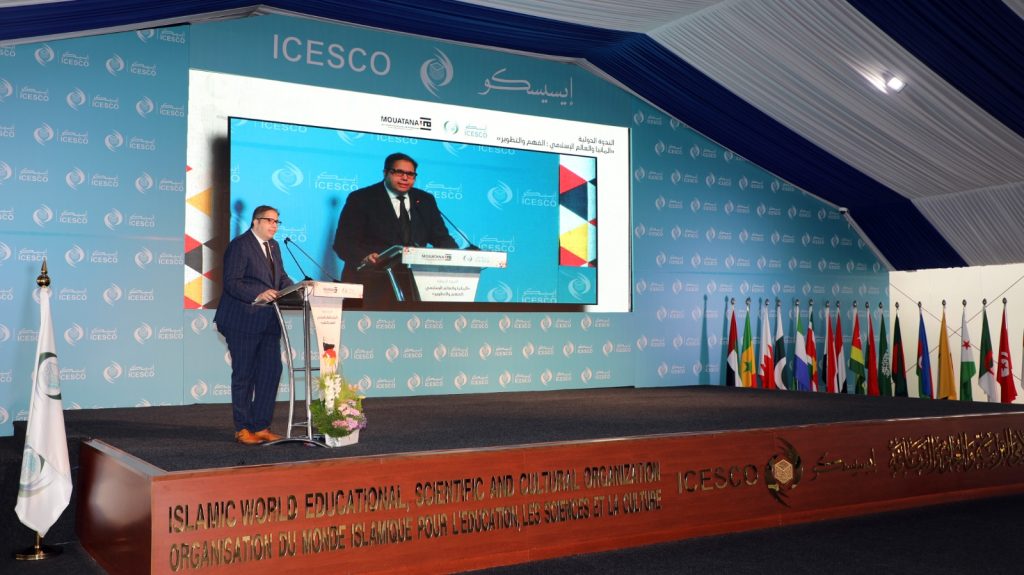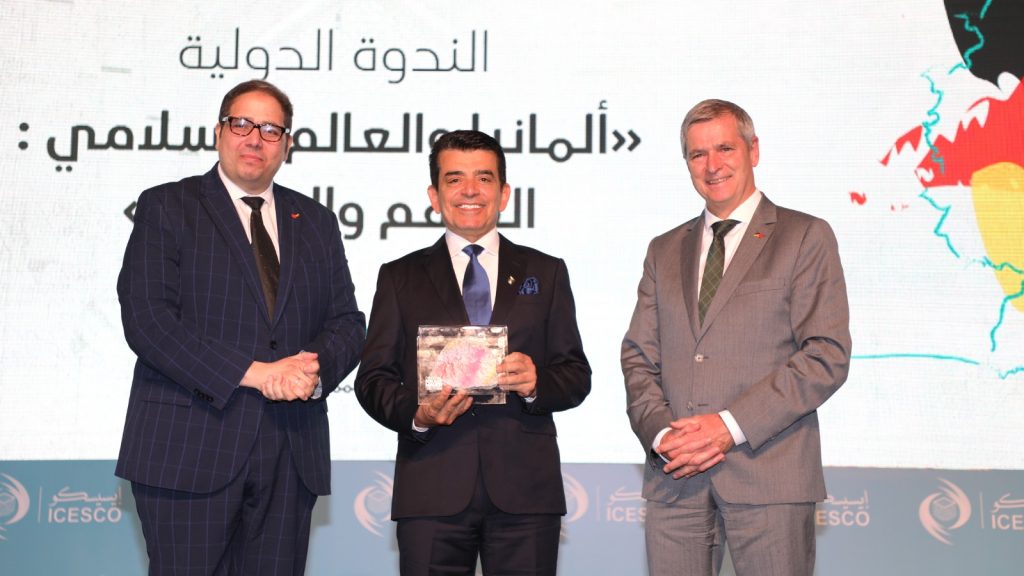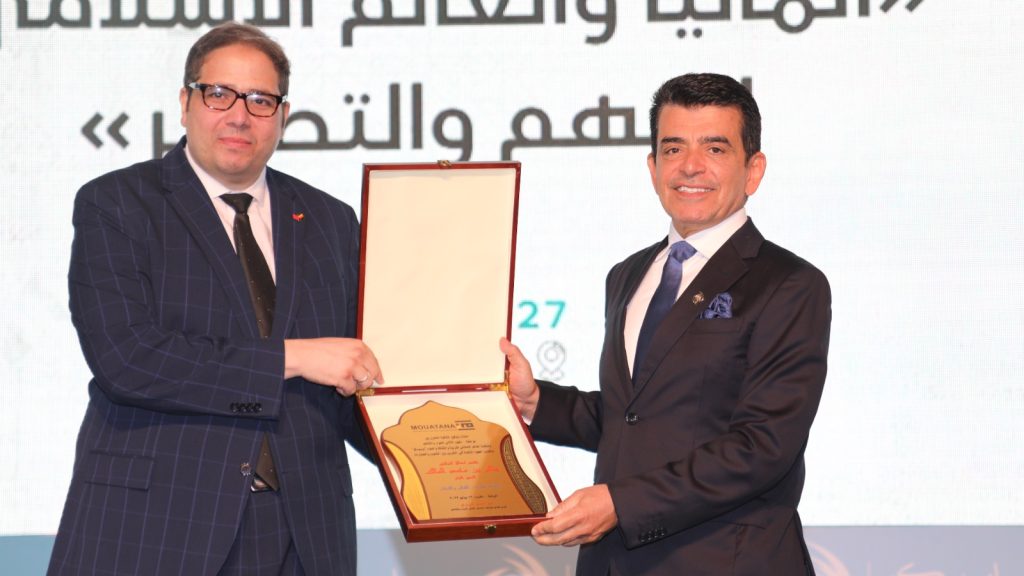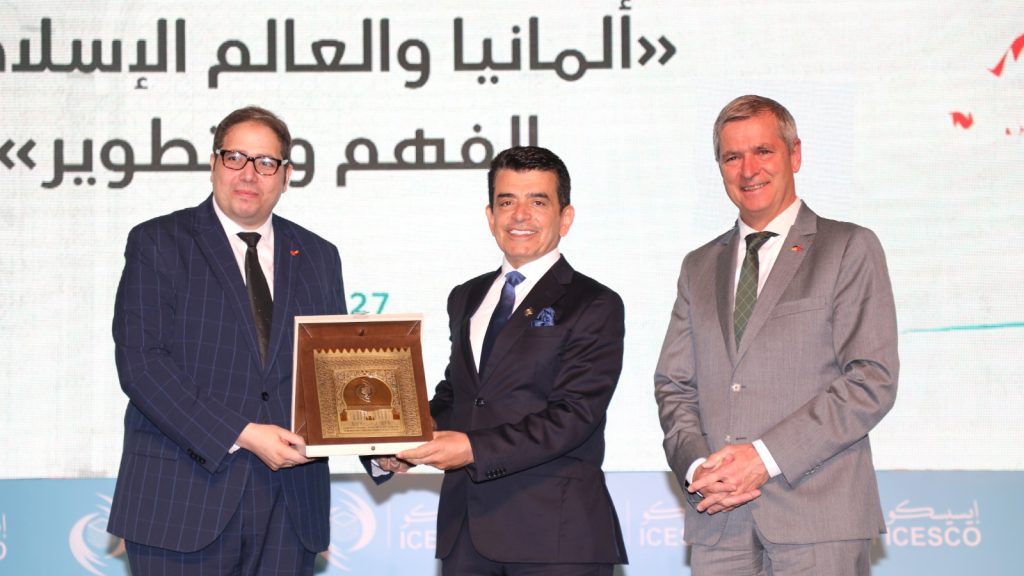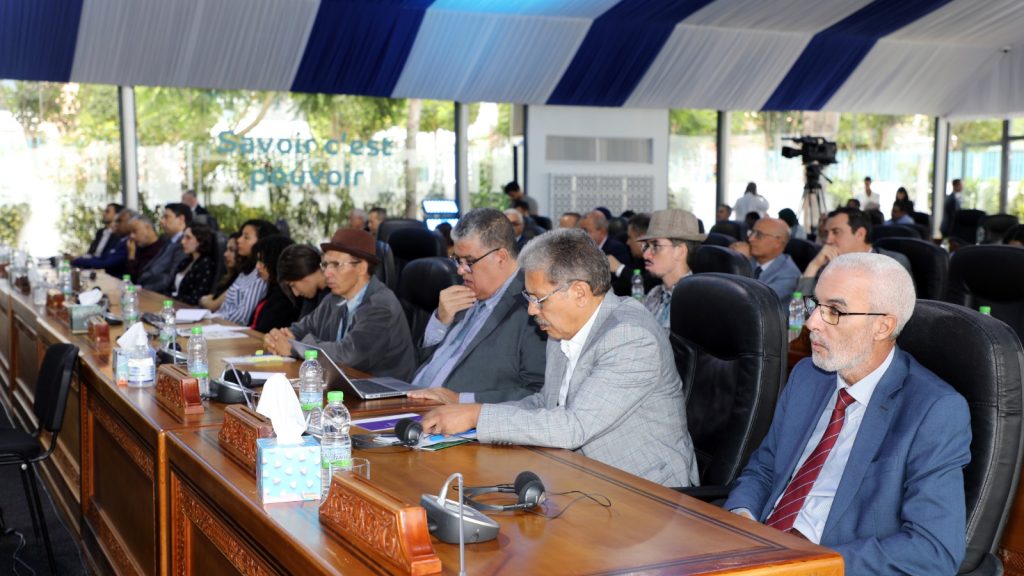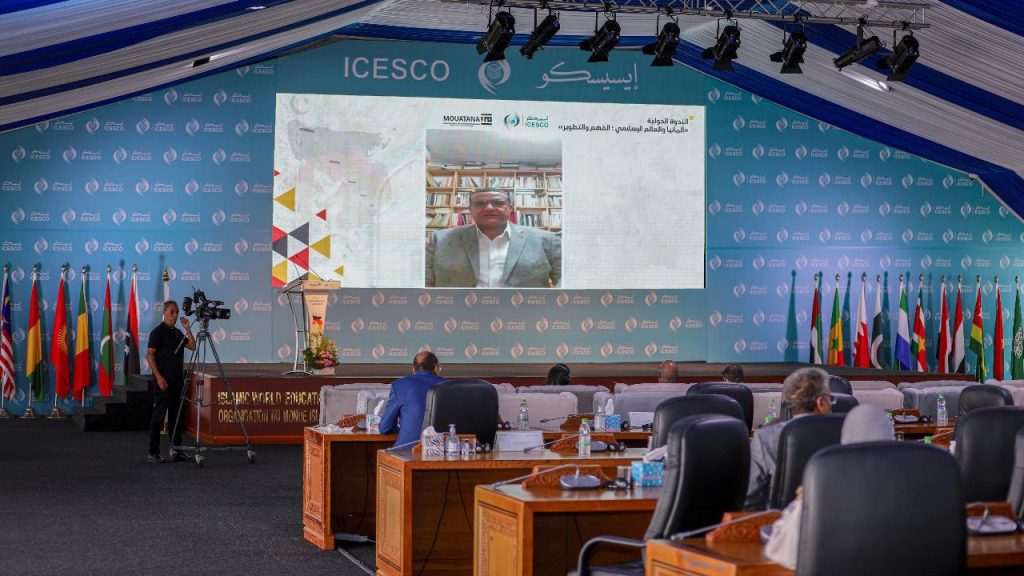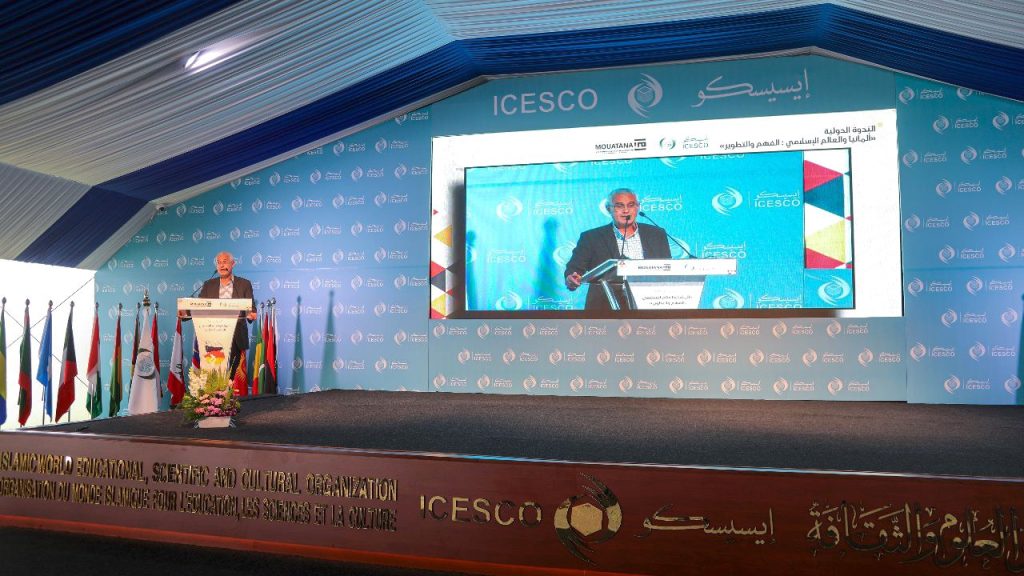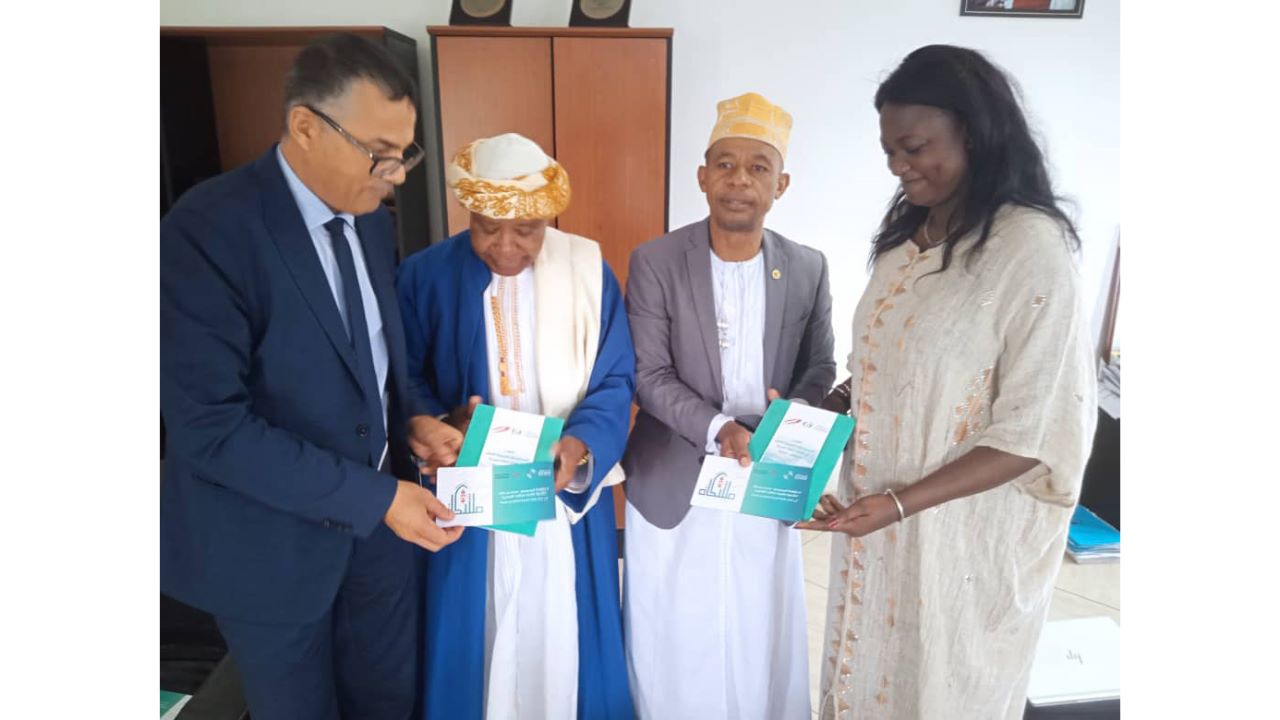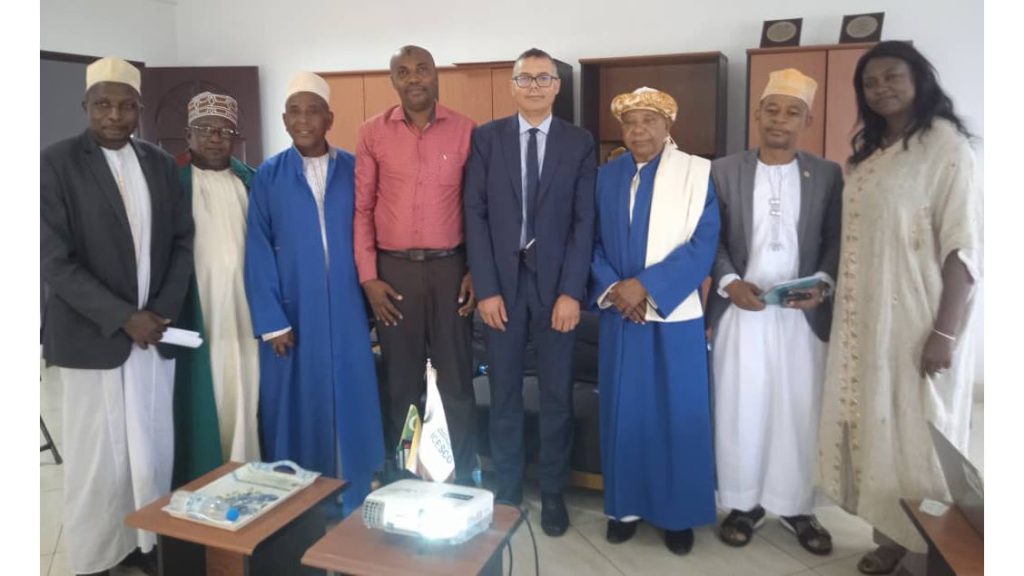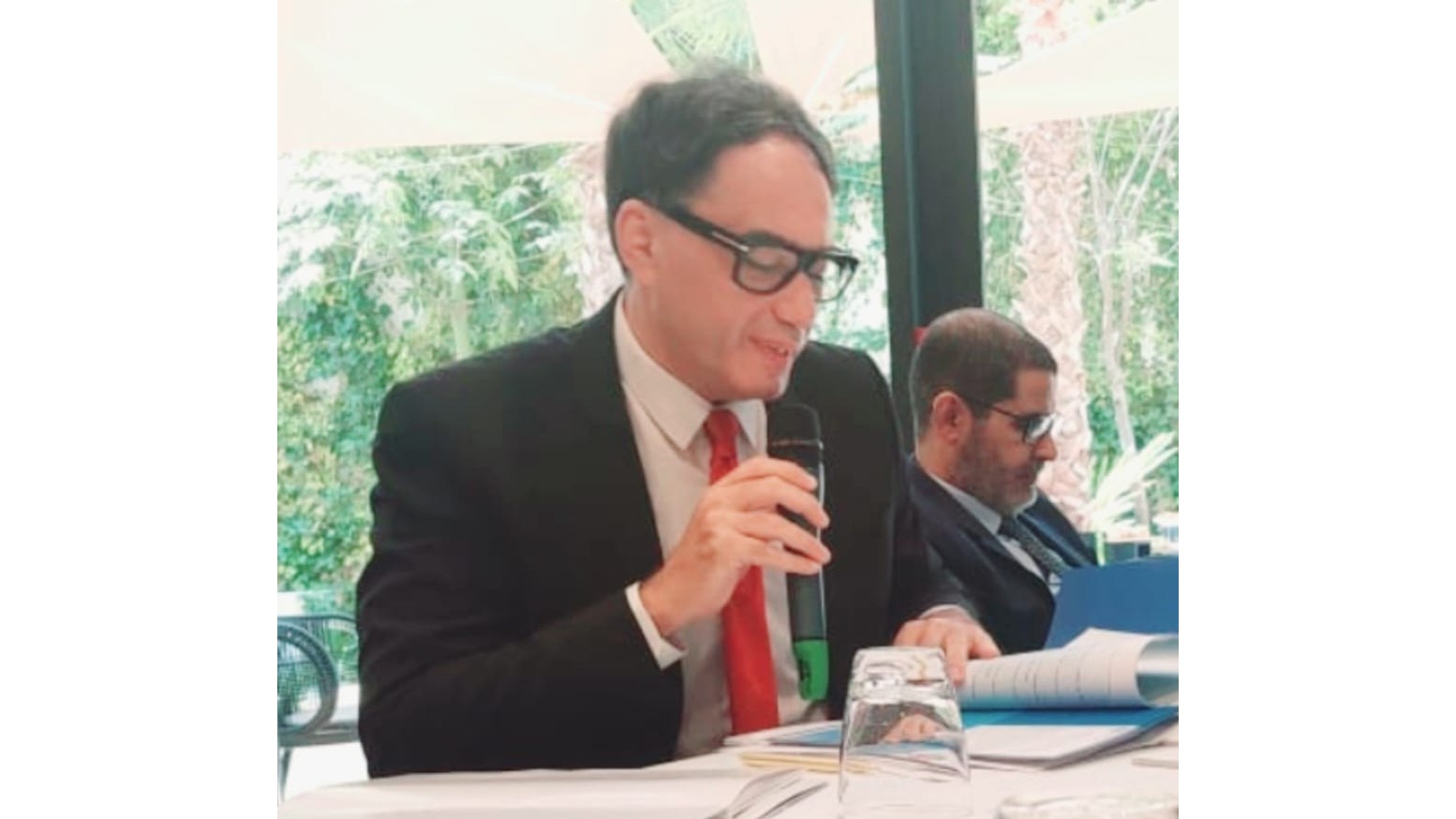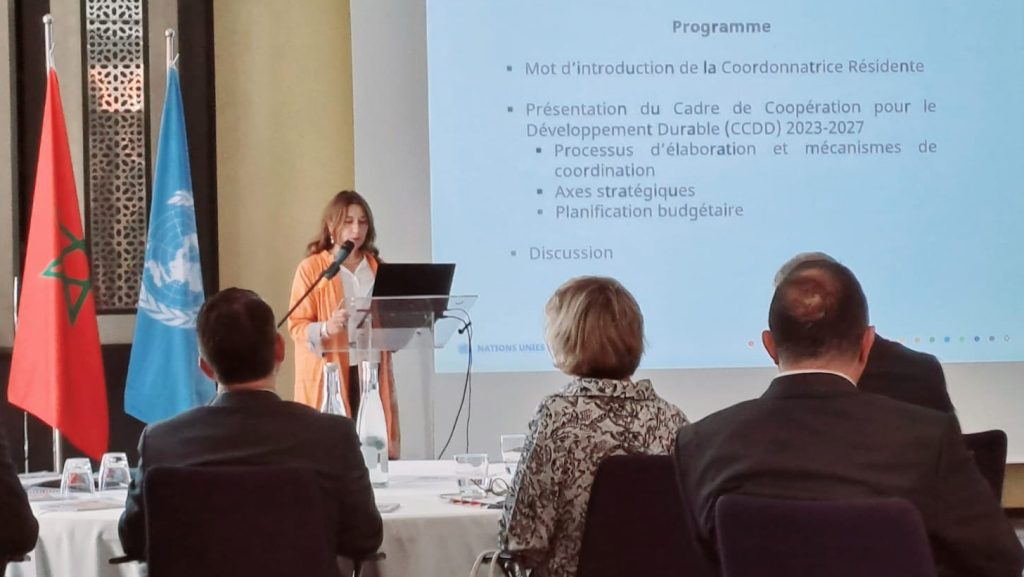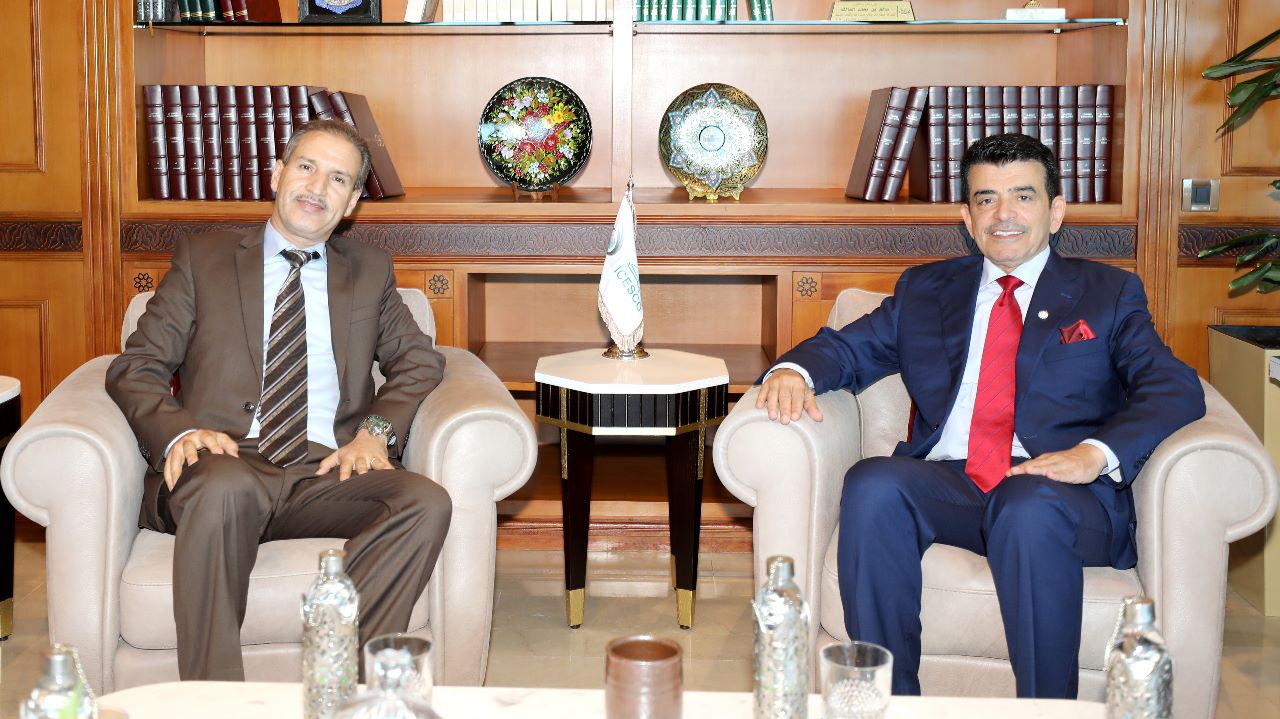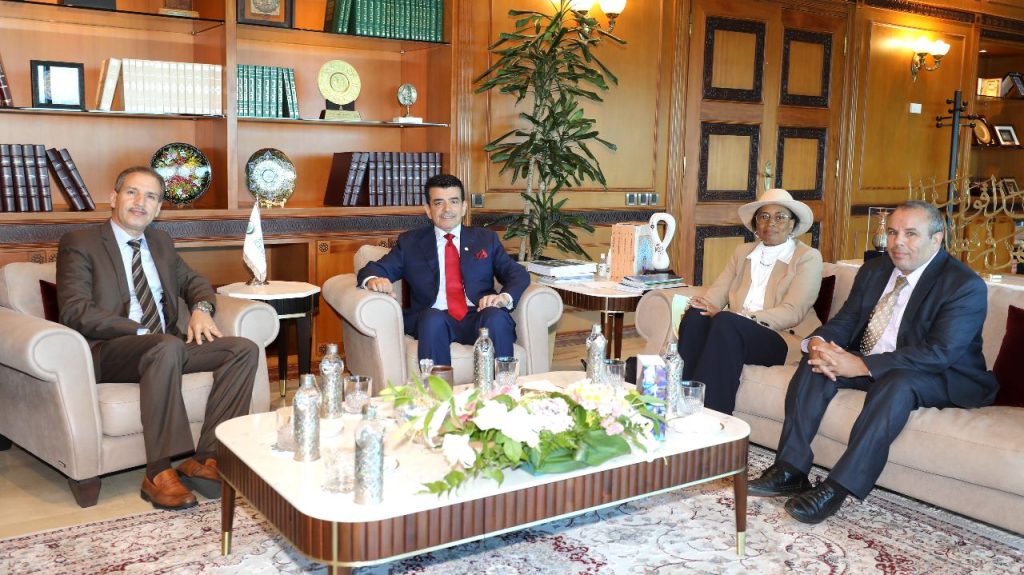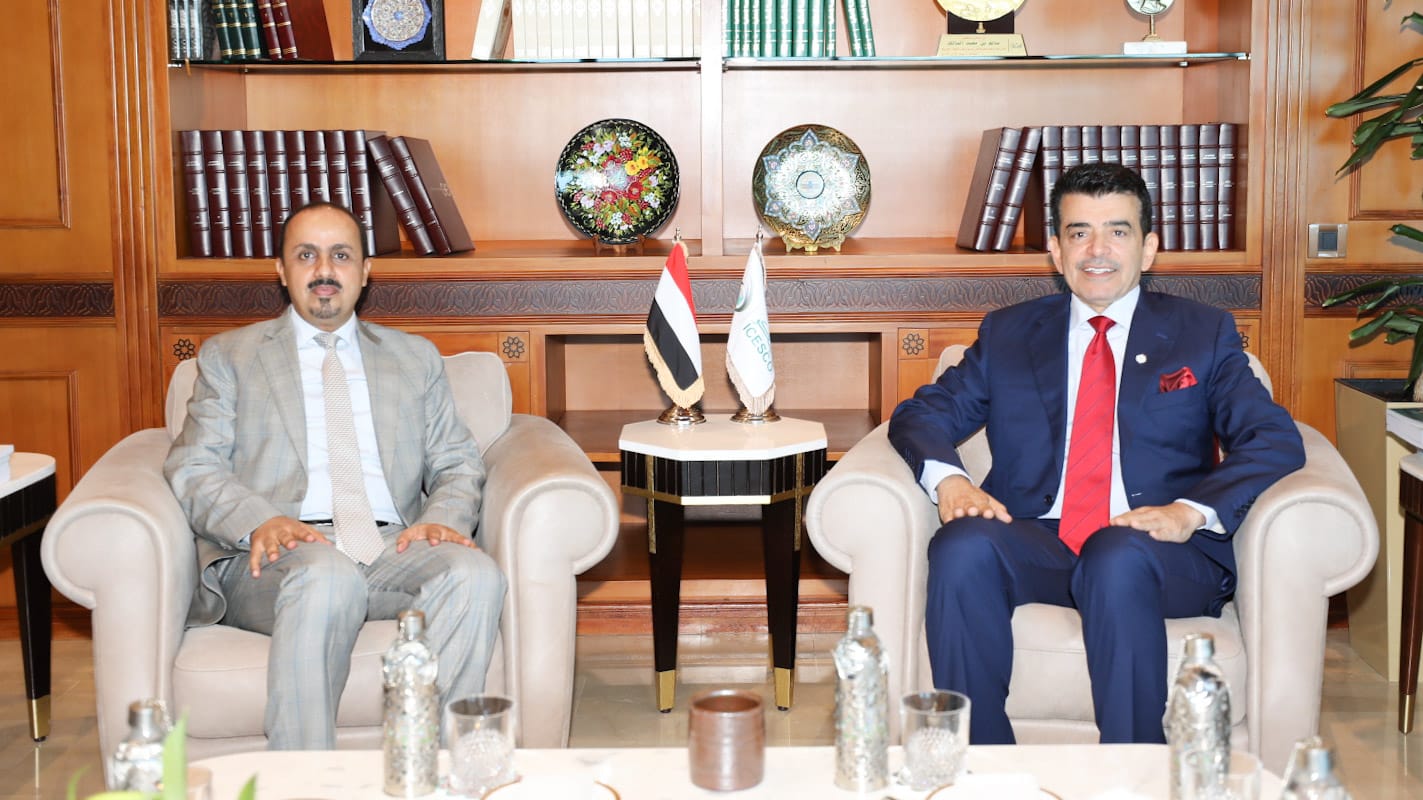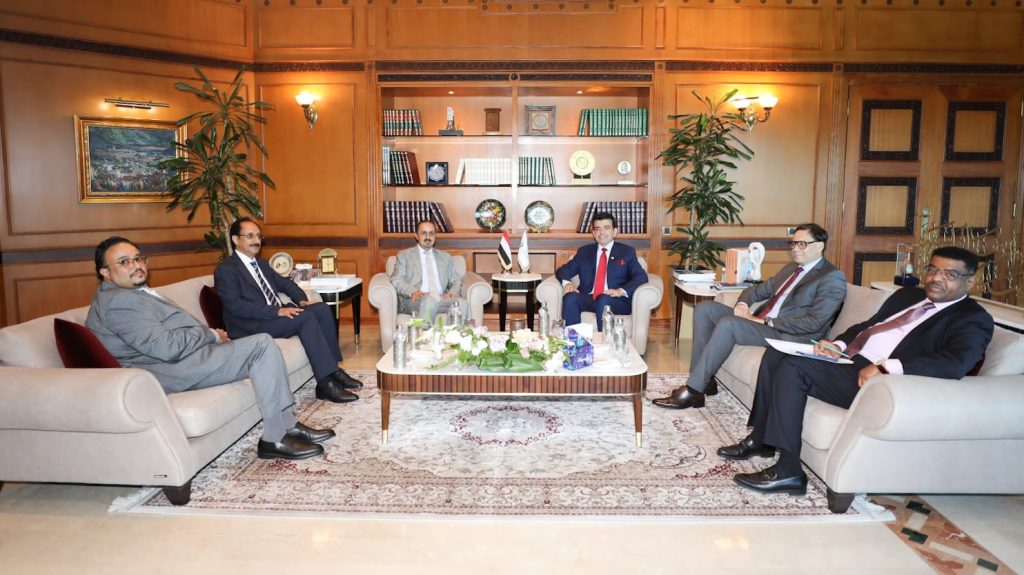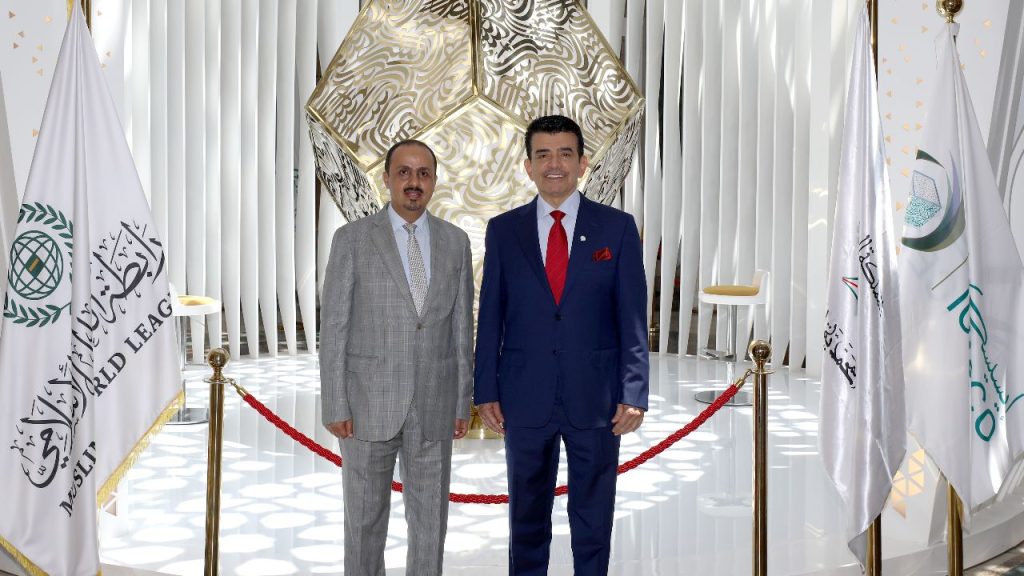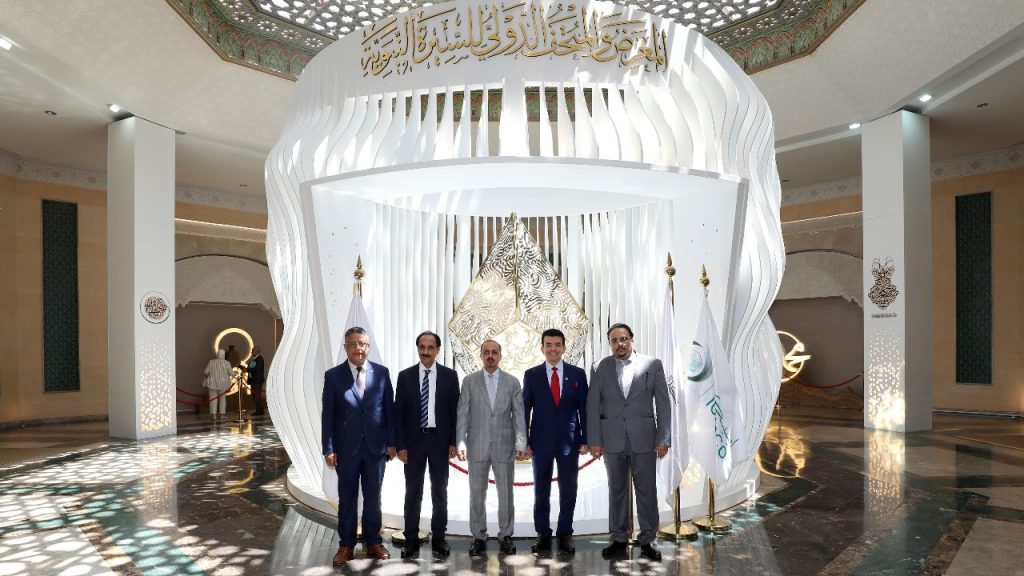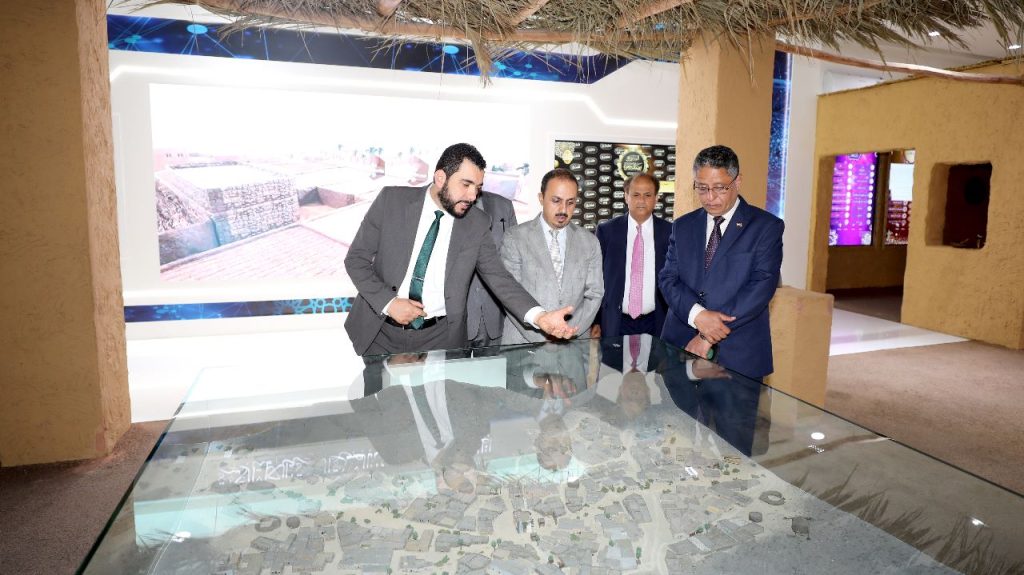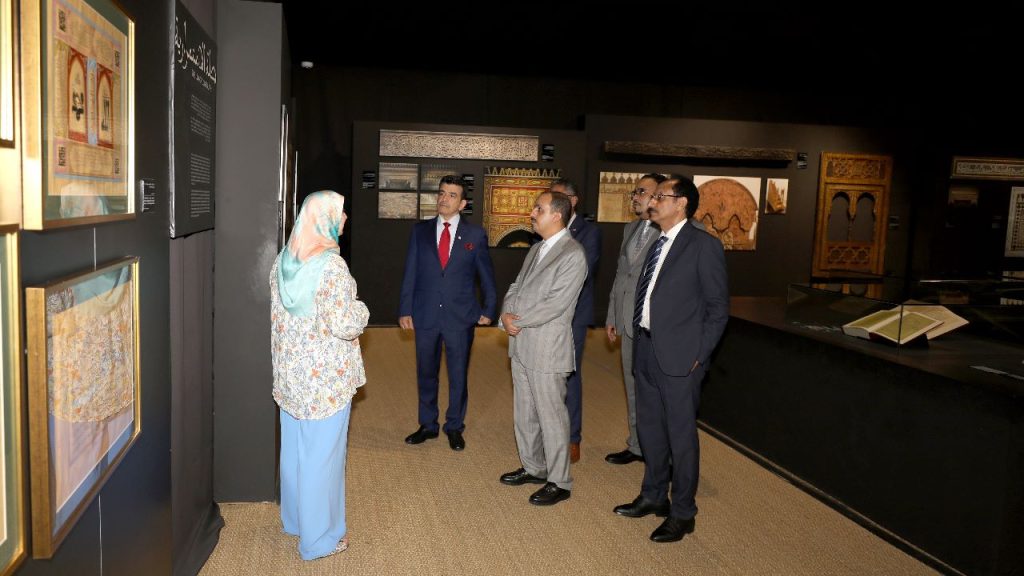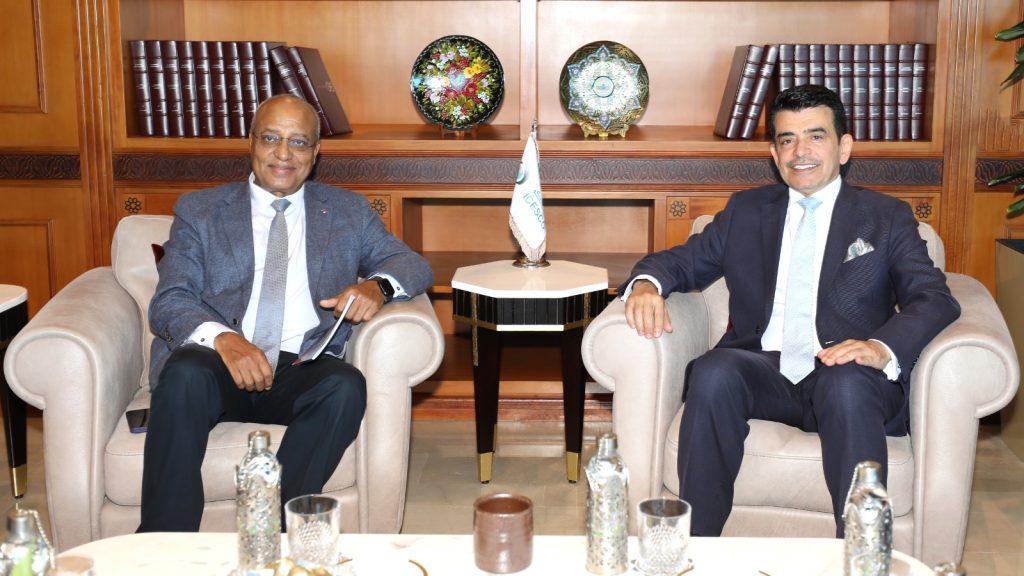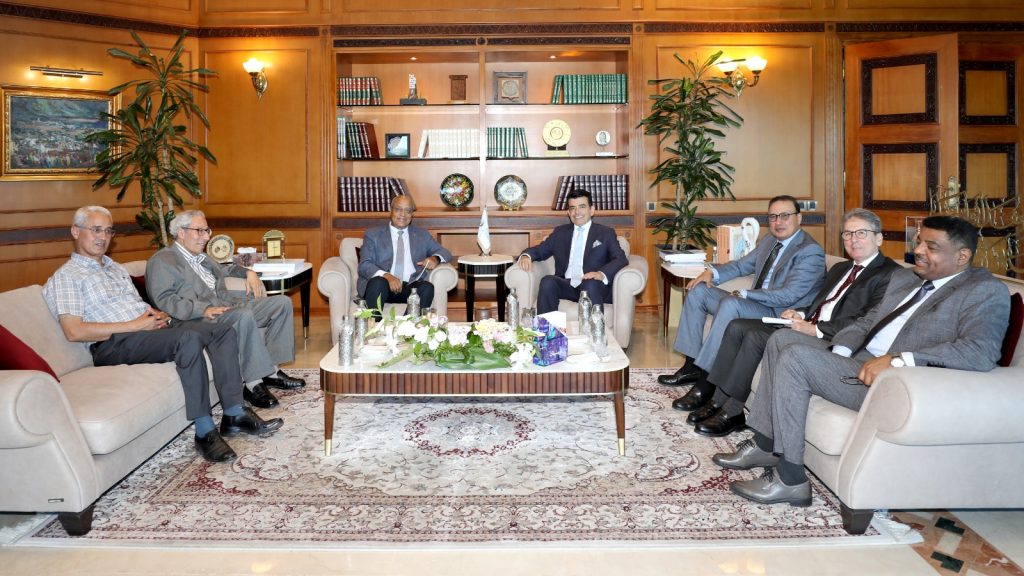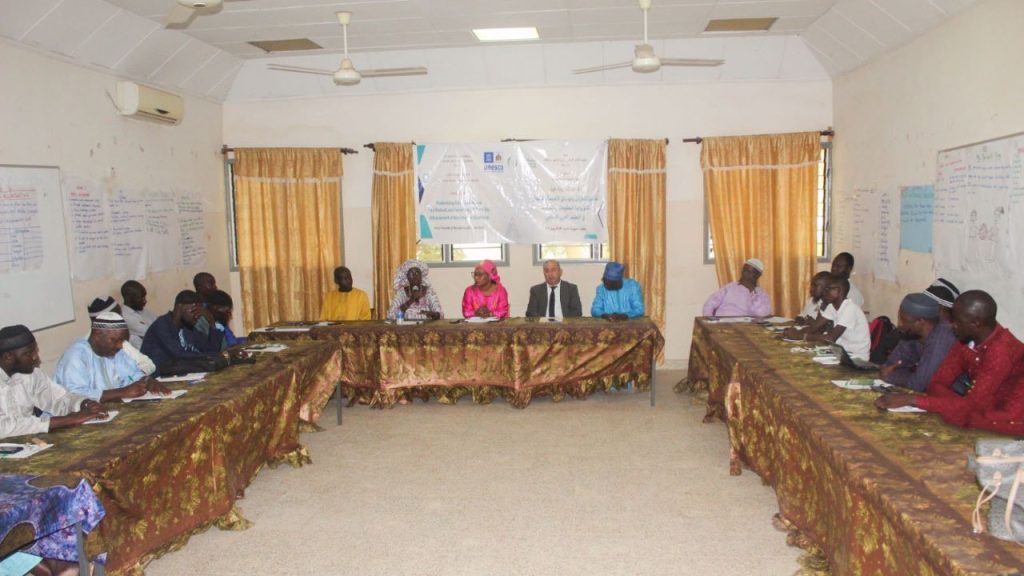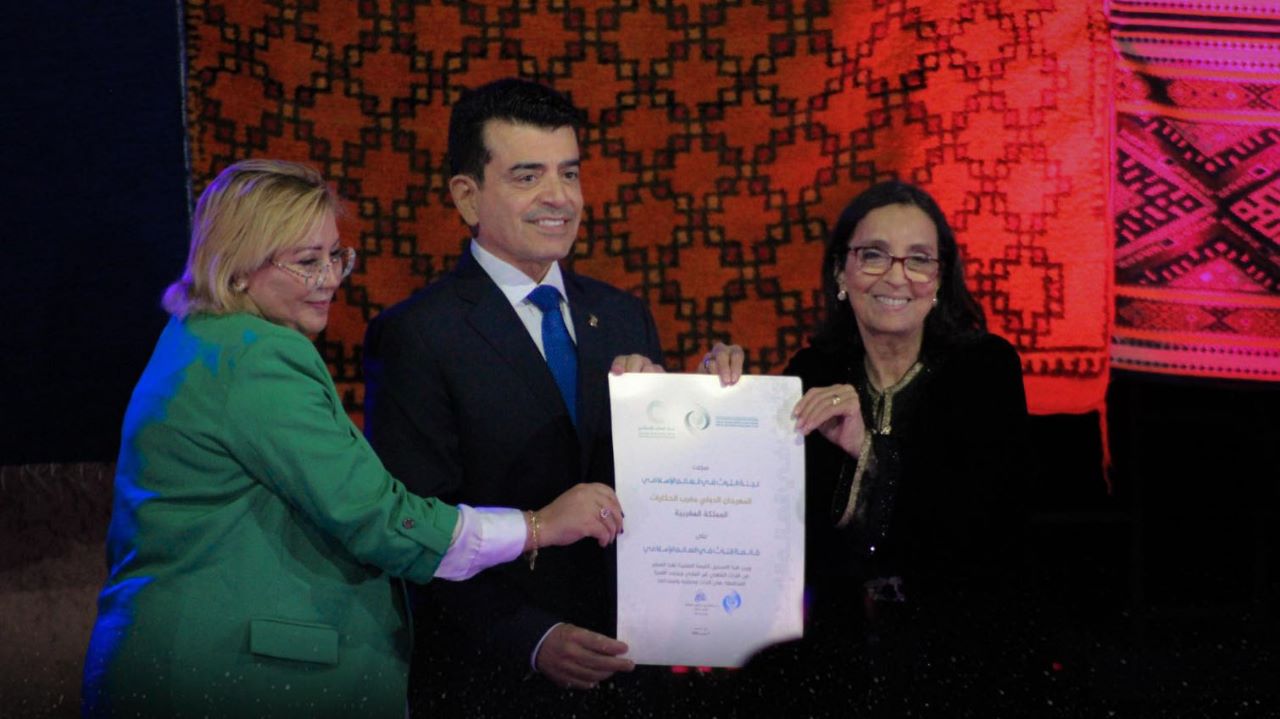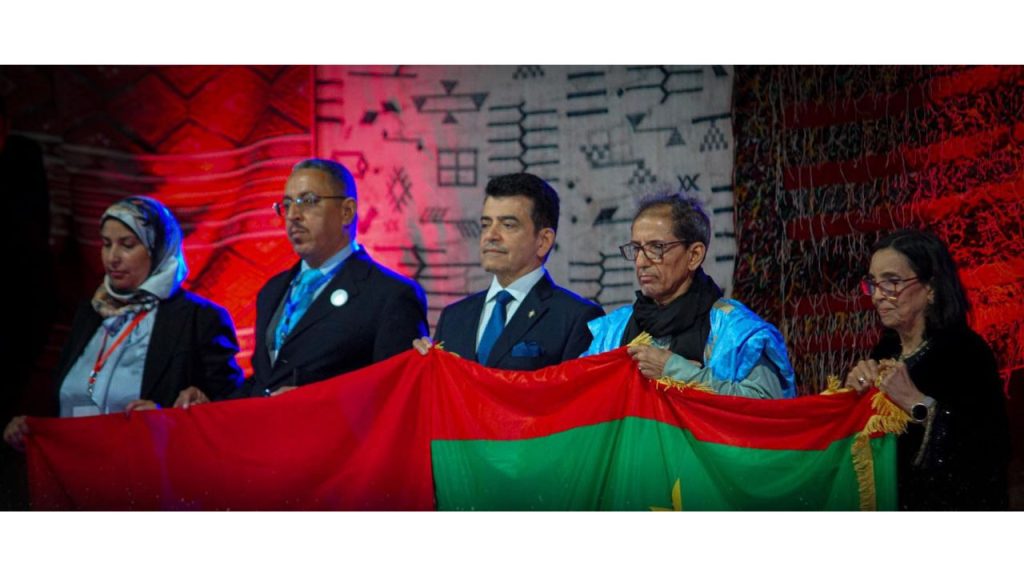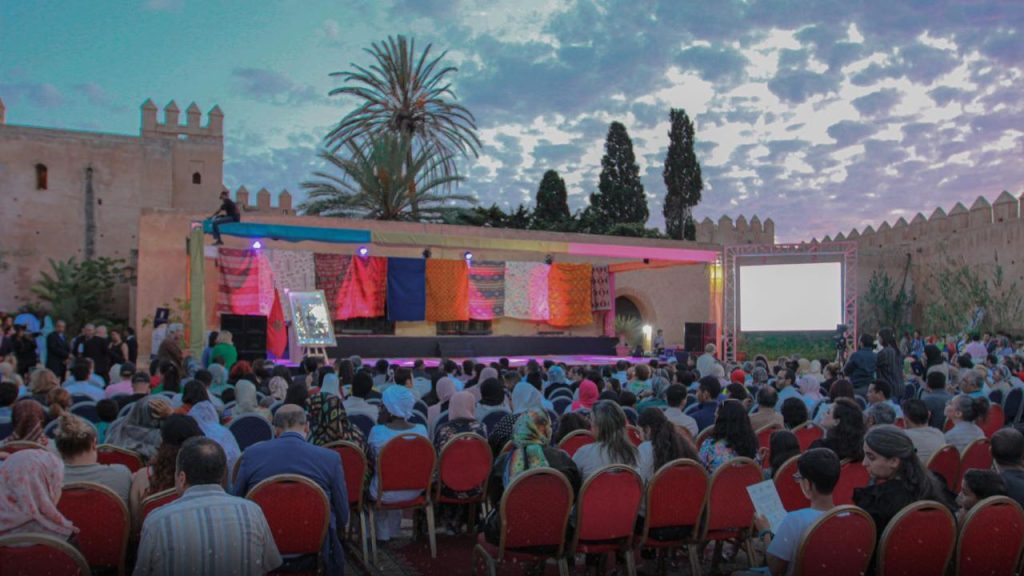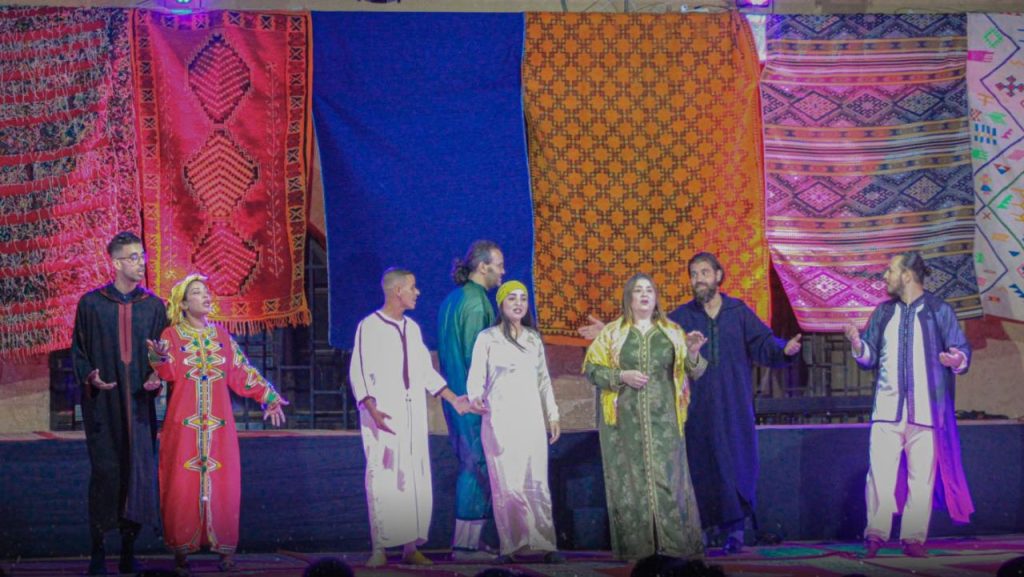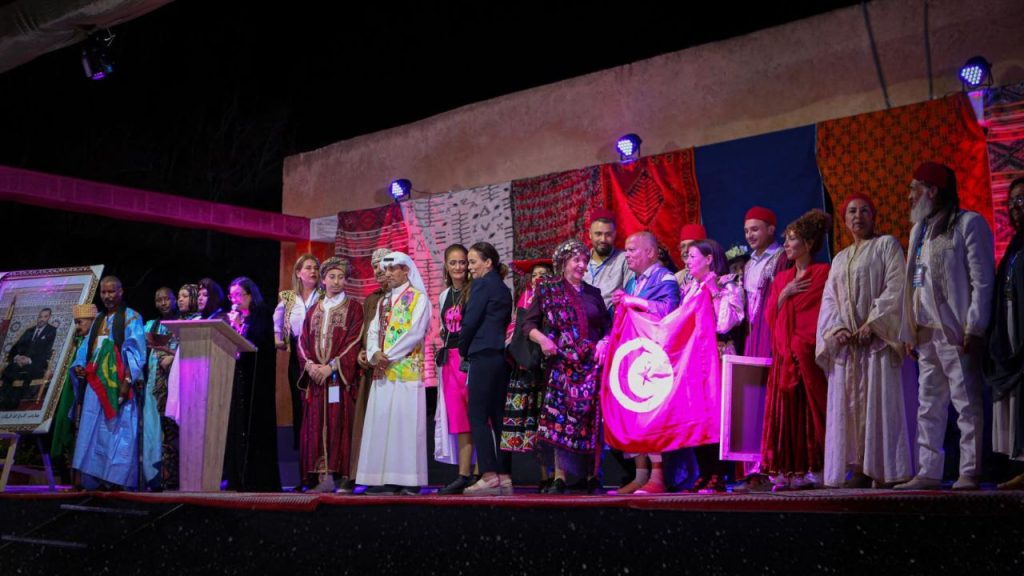The high-level officials and international specialized experts participating in the international seminar: “Germany and the Islamic World: Understanding and Developing,” held at ICESCO Headquarters, on Thursday (July 27, 2023), stressed the need to support the culture of peace, dialogue and understanding, open up new horizons for understanding and cultural exchange, promote the values of mercy and counter hatred and incitement.
The seminar, held by the Islamic World Educational, Scientific and Cultural Organization (ICESCO), in partnership with the German Institute for Dialogue and Understanding “Mouatana,” began with the recitation of verses from the Holy Quran, followed by the address of Dr. Salim M. AlMalik, ICESCO Director-General, wherein he underscored that the unique relationship between the Islamic world and Germany is worth pondering upon, explored and studied.
Besides, he pointed out that the Arab-Islamic culture has represented for centuries a rich field of study for intellects and researchers, with remarkable scientific impartiality, hailing the approach adopted by German thinkers that resulted in inspiring inferences highlighting the treasures of the Arab-Islamic heritage and paved the way for new methods of serious research in this heritage.
ICESCO Director-General also indicated that the world is currently in dire need of consolidating understanding and finding better ways to express cultural differences far from fanaticism and aggression on sanctities.
In his address, Dr. Rana Tanveer Hussain, Federal Minister of Education and Professional Training of the Islamic Republic of Pakistan, stressed the importance of unity and cooperation in building a bright future for all, underscoring that this seminar is a unique opportunity to enhance cooperation and mobilize the capacities, expertise and knowledge of our nations.
For his part, Mr. Robert Dölger, Ambassador of the Federal Republic of Germany to the Kingdom of Morocco, pointed out that Arab studies on European Orientalism open up new perspectives on the Arab world and help to strengthen understanding and cultural exchange between peoples.
Mr. Abdul Samad Al-Yazidi, Director-General of the German Institute for Dialogue and Understanding “Mouatana,” stressed the importance of understanding the concept of citizenship as every citizen is an ambassador of his or her country. He also called for promoting the values of Islamic tolerance and peace in Germany to spread the message of mercy and confront hatred and incitement.
The first working session featured papers examining the relationship between Germany and the Islamic world, with the participation of Mr. Abdul Samad Al-Yazidi, Dr. Muhammad Sharif, Advisor to ICESCO’s Science and Technology Sector, and Ms. Rabab Nissabieh, Public Relations Expert at the Central Council of Muslims in Germany.
At the end of the session, the Director General of “Mouatana” Institute presented the ICESCO Director-General with the Institute’s shield and an ancient stone from Berlin Wall. For his part, Dr. AlMalik presented Mr. Al-Yazidi with ICESCO’s shield in recognition of his efforts and contributions in promoting civilizational dialogue.
In the second working session, Dr. Abdulmalik Hibaoui, President of the German-Moroccan Council in Germany and head of the Department of Religious Dialogue at Mouatana Institute, presented an academic analysis of his book “German Orientalism: Study on Emergence, Evolution, and the Research Fields,” recently published by ICESCO, followed by critical interventions from Dr. Hatem El-Jawhari and Dr. Mohammed Massoudi.
